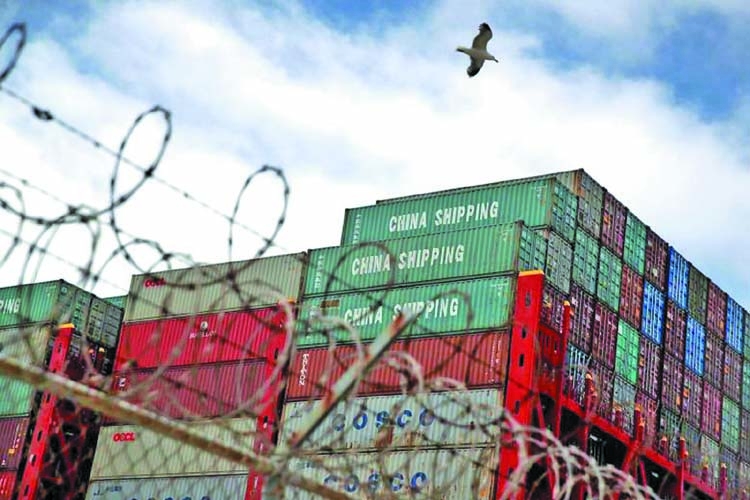China blames US for 'largest trade war'

The world's two largest economies hurtled towards the start of a trade war with the launch of the first round of US tariffs on US$34 billion of Chinese goods on Friday (July 6), as US President Donald Trump said he may ultimately impose tariffs on more than a half-trillion dollars' worth of Chinese goods. The United States began collecting the import duties at 12:01am (12:01pm Singapore time) on Friday (July 6).
Beijing was expected to immediately retaliate dollar-for-dollar with its own counter-tariffs after Trump imposed 25 per cent duties on 818 categories of products including Chinese machinery, electronics and high-tech equipment including autos, computer hard drives and LEDs.
Companies like Husco International, a Wisconsin-based manufacturing company that makes parts for companies like Ford, General Motors, Caterpillar and John Deere, now face a 25 per cent increase on a variety of parts imported from China.
Austin Ramirez, Husco International's chief executive, said that increase would immediately put him and other US manufacturers at a disadvantage to competitors abroad.
"One of the big scary unknowns is we don't know how China will react," Ramirez said. "There are lots of things they could do to make life difficult for US businesses operating in China that would be detrimental to us." Moments after the US tariffs took effect, China accused the US of unleashing "the largest trade war in economic history" and said it was "forced to take necessary countermeasures".
"China promised not to fire the first shot, but in order to defend the core interests of the country and the interests of the people, we are forced to take the necessary countermeasures," China's commerce ministry said in a statement.
It remained to be seen whether the American president would carry out recent threats to respond to any Chinese retaliation with maximum pressure - raising US duties on Chinese goods in increments of US$200 billion until virtually all the goods America buys from its largest trading partner are subject to duties.
But, aboard the presidential jet on Thursday en route to Montana, Trump erased any hope of an about-face. He warned that subsequent rounds could see tariffs on more than US$500 billion worth of goods - roughly the amount that the United States imported from China last year.
"You have another 16 (billion US dollars) in two weeks, and then, as you know, we have US$200 billion in abeyance and then after the US$200 billion, we have US$300 billion in abeyance. Ok? So we have 50 plus 200 plus almost 300," Trump told reporters aboard Air Force One.
Trump's comments appeared to increase the stakes for potential retaliation by China. Previously, Trump had threatened up to US$400 billion in additional tariffs should China follow through on its plans to retaliate against the initial US tariffs on Chinese goods including autos, computer disk drives, pump and valve parts and light-emitting diodes.
The arrival of the long-threatened tariffs marked the failure of months of dialogue between the world's two largest economies and came amid hand-wringing from industry leaders who fear shrinking markets, higher prices and slower growth.
